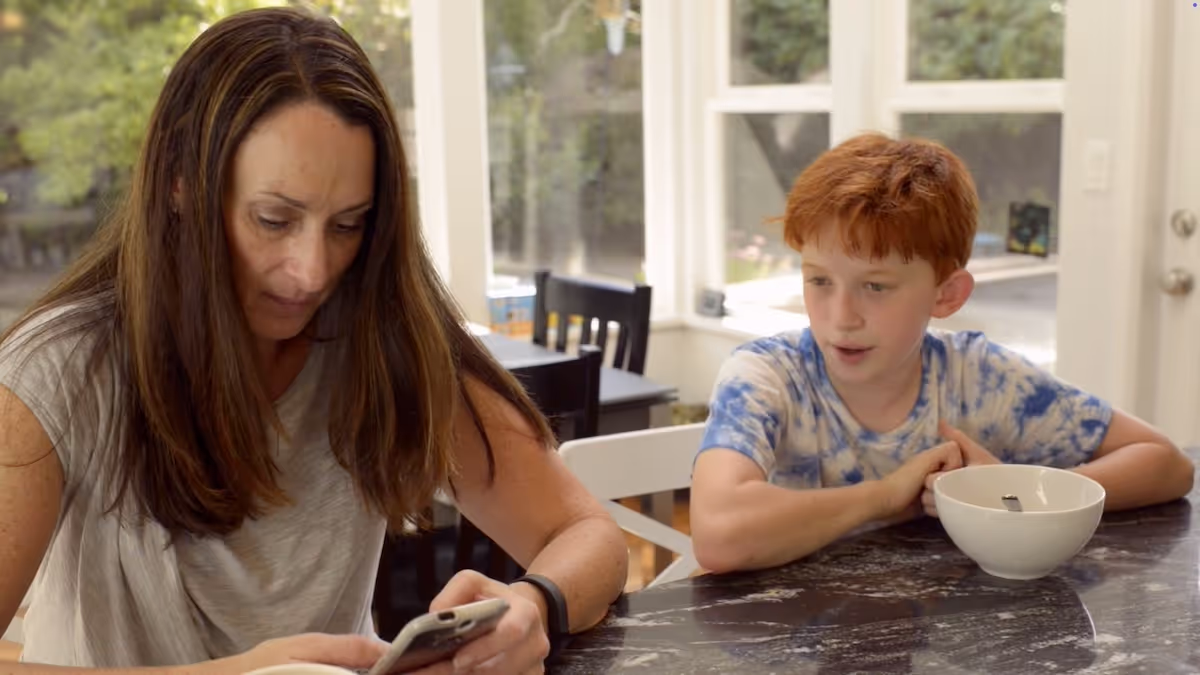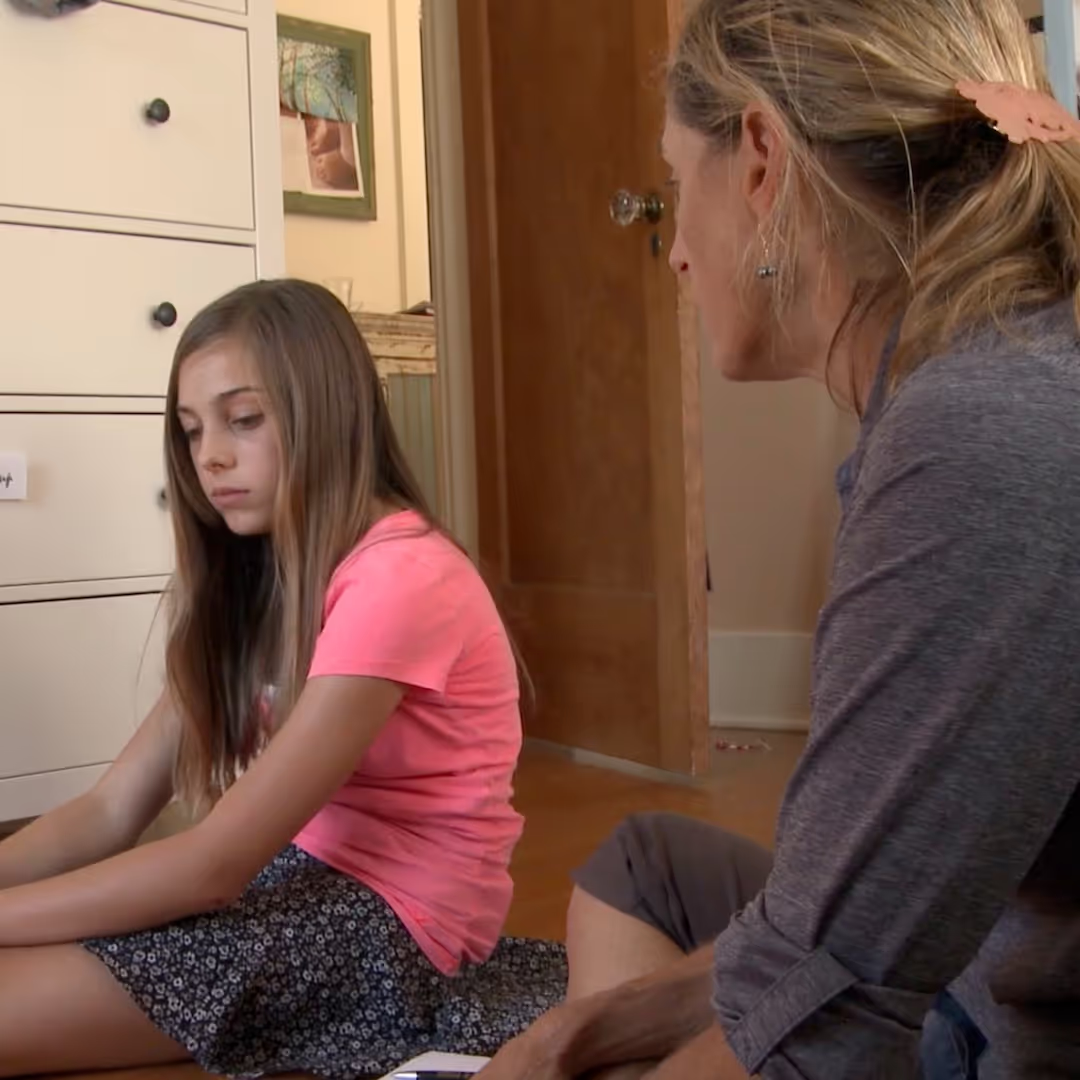



When I am talking with youth about screen time, I often ask them, “What do you want your parents to understand regarding your screen time?” The number one response is “I want them to trust me.” Many of the same kids go on to tell me about the ways they sneak tech time from their parents—under the covers, during school days, etc. It took me awhile to wrap my head around this disconnect.
I have to come to understand how kids are telling the truth about how much our trust means to them. They want adults to believe that they are capable of making things happen and capable of being independent. They need our trust and our confidence to give them the strength to deal with all the challenges they face in growing up.
So why lie? Kids and teens lie to us about a lot of things, but usually, it's in the form of withholding information and not blatant lies. One of the big reasons that research shows is they don’t want to be judged poorly by adults, it's not just that they don’t want to get in trouble.
Parents often put honesty at the top of the list of virtues they most want in their children. Plain and simple, right? Not really. We, humans, partake in many untruths all the time. Yep, we lie in different forms—a lot. Kids hear us twist the truth, omit things wittingly, and so on.
Developmentally, lying takes intelligence. It's a skill young kids start to explore around age three and then increases until they're about six years old. Usually, by seven it's on the decline. When kids hit pre-teen and teen years, when sensation seeking urges increase and desire for greater autonomy also increases, often they will withhold information and at times will lie.
Sneaking screen time is ubiquitous, it can cause a ton of friction in homes and put strife into relationships. Kids don't feel happy about sneaking—it comes at an emotional cost. They know at some deep level that they are undermining the one thing they want so much: trust.
So how to raise more honest children? Here are some data-driven ideas:
Research shows that youth lie the least to parents who do these three main things:
Here is an example. Tommy, from Screenagers, admitted to me he would sneak his iPad at bedtime. Even though he used it under the covers, his parents could see the light. When Tommy got caught, Tommy’s dad told me he didn’t punish him. Instead, he had a conversation with Tommy about why using his device after bedtime was not good for his health and sleep. He wanted Tommy to understand that, while he understood the pull of the game on his iPad, there were reasons for needing to set limits.
Lastly, I have learned that as much as youth want to be trusted, they want to be understood. So let's listen. Show them that their voice matters and make adjustments to rules now and then. For example, if a teen makes a good argument for why his/her phone should not be put away at 9:30 but 10, then you may decide to do that but stick to another rule, like making sure all screens are out of the bedroom at bedtime. You can explain to your teen science and experience shows us that “sleep is supreme.” You know me—I always want to do a plug for sleep hygiene.
For this weeks' TTT let’s talk about honesty:
As well as our weekly blog, we publish videos like this one every week on the Screenagers YouTube channel
Learn more about showing our movies in your school or community!
Join Screenagers filmmaker Delaney Ruston MD for our latest Podcast

Learn more about our Screen-Free Sleep campaign at the website!
Our movie made for parents and educators of younger kids
Learn more about showing our movies in your school or community!
Learn more about showing our movies in your school or community!
Join Screenagers filmmaker Delaney Ruston MD for our latest Podcast

Learn more about our Screen-Free Sleep campaign at the website!
Our movie made for parents and educators of younger kids
Join Screenagers filmmaker Delaney Ruston MD for our latest Podcast
As we’re about to celebrate 10 years of Screenagers, we want to hear what’s been most helpful and what you’d like to see next.
Please click here to share your thoughts with us in our community survey. It only takes 5–10 minutes, and everyone who completes it will be entered to win one of five $50 Amazon vouchers.

When I am talking with youth about screen time, I often ask them, “What do you want your parents to understand regarding your screen time?” The number one response is “I want them to trust me.” Many of the same kids go on to tell me about the ways they sneak tech time from their parents—under the covers, during school days, etc. It took me awhile to wrap my head around this disconnect.
I have to come to understand how kids are telling the truth about how much our trust means to them. They want adults to believe that they are capable of making things happen and capable of being independent. They need our trust and our confidence to give them the strength to deal with all the challenges they face in growing up.
So why lie? Kids and teens lie to us about a lot of things, but usually, it's in the form of withholding information and not blatant lies. One of the big reasons that research shows is they don’t want to be judged poorly by adults, it's not just that they don’t want to get in trouble.
Parents often put honesty at the top of the list of virtues they most want in their children. Plain and simple, right? Not really. We, humans, partake in many untruths all the time. Yep, we lie in different forms—a lot. Kids hear us twist the truth, omit things wittingly, and so on.
Developmentally, lying takes intelligence. It's a skill young kids start to explore around age three and then increases until they're about six years old. Usually, by seven it's on the decline. When kids hit pre-teen and teen years, when sensation seeking urges increase and desire for greater autonomy also increases, often they will withhold information and at times will lie.
Sneaking screen time is ubiquitous, it can cause a ton of friction in homes and put strife into relationships. Kids don't feel happy about sneaking—it comes at an emotional cost. They know at some deep level that they are undermining the one thing they want so much: trust.
So how to raise more honest children? Here are some data-driven ideas:
Research shows that youth lie the least to parents who do these three main things:
Here is an example. Tommy, from Screenagers, admitted to me he would sneak his iPad at bedtime. Even though he used it under the covers, his parents could see the light. When Tommy got caught, Tommy’s dad told me he didn’t punish him. Instead, he had a conversation with Tommy about why using his device after bedtime was not good for his health and sleep. He wanted Tommy to understand that, while he understood the pull of the game on his iPad, there were reasons for needing to set limits.
Lastly, I have learned that as much as youth want to be trusted, they want to be understood. So let's listen. Show them that their voice matters and make adjustments to rules now and then. For example, if a teen makes a good argument for why his/her phone should not be put away at 9:30 but 10, then you may decide to do that but stick to another rule, like making sure all screens are out of the bedroom at bedtime. You can explain to your teen science and experience shows us that “sleep is supreme.” You know me—I always want to do a plug for sleep hygiene.
For this weeks' TTT let’s talk about honesty:
As well as our weekly blog, we publish videos like this one every week on the Screenagers YouTube channel
Sign up here to receive the weekly Tech Talk Tuesdays newsletter from Screenagers filmmaker Delaney Ruston MD.
We respect your privacy.

When I am talking with youth about screen time, I often ask them, “What do you want your parents to understand regarding your screen time?” The number one response is “I want them to trust me.” Many of the same kids go on to tell me about the ways they sneak tech time from their parents—under the covers, during school days, etc. It took me awhile to wrap my head around this disconnect.
I have to come to understand how kids are telling the truth about how much our trust means to them. They want adults to believe that they are capable of making things happen and capable of being independent. They need our trust and our confidence to give them the strength to deal with all the challenges they face in growing up.
So why lie? Kids and teens lie to us about a lot of things, but usually, it's in the form of withholding information and not blatant lies. One of the big reasons that research shows is they don’t want to be judged poorly by adults, it's not just that they don’t want to get in trouble.
Parents often put honesty at the top of the list of virtues they most want in their children. Plain and simple, right? Not really. We, humans, partake in many untruths all the time. Yep, we lie in different forms—a lot. Kids hear us twist the truth, omit things wittingly, and so on.
Developmentally, lying takes intelligence. It's a skill young kids start to explore around age three and then increases until they're about six years old. Usually, by seven it's on the decline. When kids hit pre-teen and teen years, when sensation seeking urges increase and desire for greater autonomy also increases, often they will withhold information and at times will lie.
Sneaking screen time is ubiquitous, it can cause a ton of friction in homes and put strife into relationships. Kids don't feel happy about sneaking—it comes at an emotional cost. They know at some deep level that they are undermining the one thing they want so much: trust.
So how to raise more honest children? Here are some data-driven ideas:
Research shows that youth lie the least to parents who do these three main things:
Here is an example. Tommy, from Screenagers, admitted to me he would sneak his iPad at bedtime. Even though he used it under the covers, his parents could see the light. When Tommy got caught, Tommy’s dad told me he didn’t punish him. Instead, he had a conversation with Tommy about why using his device after bedtime was not good for his health and sleep. He wanted Tommy to understand that, while he understood the pull of the game on his iPad, there were reasons for needing to set limits.
Lastly, I have learned that as much as youth want to be trusted, they want to be understood. So let's listen. Show them that their voice matters and make adjustments to rules now and then. For example, if a teen makes a good argument for why his/her phone should not be put away at 9:30 but 10, then you may decide to do that but stick to another rule, like making sure all screens are out of the bedroom at bedtime. You can explain to your teen science and experience shows us that “sleep is supreme.” You know me—I always want to do a plug for sleep hygiene.
For this weeks' TTT let’s talk about honesty:
As well as our weekly blog, we publish videos like this one every week on the Screenagers YouTube channel


Parenting in this digital age is full of challenges. I imagine many of you are nodding in agreement. And when we look for advice online, it can feel like a sea of perfect experts with perfect advice: “Just follow these three easy steps and everything will fall into place.” In this week’s blog, I share a story about a moment with my daughter Tessa that did not go quite as planned but ended up teaching us both something important.
READ MORE >
Wow! Summer really goes by fast, doesn’t it? Back-to-school is already here for some and not far away for others. Ahead of this school year, I’ve hand-picked four of our most useful blogs. Practical, timely guides to help you set your family up for a healthier, more balanced relationship with technology in the months ahead.
READ MORE >for more like this, DR. DELANEY RUSTON'S NEW BOOK, PARENTING IN THE SCREEN AGE, IS THE DEFINITIVE GUIDE FOR TODAY’S PARENTS. WITH INSIGHTS ON SCREEN TIME FROM RESEARCHERS, INPUT FROM KIDS & TEENS, THIS BOOK IS PACKED WITH SOLUTIONS FOR HOW TO START AND SUSTAIN PRODUCTIVE FAMILY TALKS ABOUT TECHNOLOGY AND IT’S IMPACT ON OUR MENTAL WELLBEING.
